Industry 4.0 and the mantra of smart manufacturing
Autocar Professional's second Smart Manufacturing Conclave, held in Chennai on June 28, saw incisive debate and discussion on how industry can optimise manufacturing operations, so critical in an era of disruption.
How can manufacturing operations be optimised? How can personnel efficiencies be enhanced? How can collaborative systems respond in real time to meet fast-changing customer demands and industry trends. The mantra is Industry 4.0 or Smart Manufacturing. It was the raison d'etre of Autocar Professional's 'Smart Manufacturing Conclave' held in at the Hilton in Chennai on June 28.
Coming exactly 10 days after the very successful BS VI Conclave held in New Delhi, much was expected of the second Smart Manufacturing Conclave and it proved to be just as good, drawing a large number of representatives of leading OEMs and Tier I suppliers, all keen to stay abreast of the latest in the field of intelligent manufacturing in the dynamically changing automotive industry. The daylong conference comprised multiple sessions, each hosting industry and technology experts.
The domestic automotive sector is the bedrock of India's the overall manufacturing sector, contributing over 7 percent to the country’s GPD, and employing over 3 million skilled personnel. While India Auto Inc's growth is vital and linked to the growth of the economy, rapidly changing dynamics of the auto sector have seen the fundamentals of the industry shifting rapidly, in the process changing the conventional ways of usual manufacturing.
Over the past three decades, the Indian automotive sector, comprising both OEMs and component suppliers, has evolved to become truly global in adopting most modern global particles. This is apparent in the increasing exports of vehicles and parts from India developed markets. BS VI compliance will give an additional boost to this effort.
As the industry tackles new megatrends of connectivity, autonomous, safety and electrification, Industry 4.0, Internet of Things and simulation are gradually becoming important tools of future growth.
Dr Arvind Bharadwaj: "These are difficult times for the mobility industry but being an optimist I would say this is a blip that we are going through."
To take on these challenging times, Dr Arvind Bharadwaj, Chief Technology Officer, Farm Equipment Sector, Mahindra & Mahindra, who inaugurated the Conclave, touched upon key fundamental issues in his keynote address. "These are difficult times for the mobility industry but being an optimist I would say this is a blip that we are going through. The turnaround is around the corner with growth back on track soon.”
According to Dr Bharadwaj, there are some major disrupters to the automotive industry. “The first is obviously the technological disruption with megatrends like connected, shared and autonomous mobility and electrification challenging incumbent vehicle makers and also likely to reshape the mobility sector over the next two decades. The second is the challenge with changing consumer preferences. The car no longer has as much of an emotional connect as it did in the past. While it remains an object of desire for a substantial chunk of customers, it is now becoming an object of utility. Lastly, government regulations and policies are significantly changing the way the product of the future will look like.”
Session I: Make in India, For the world. The Next Phase.
The first speaker of the day, Ravi Gogia, President, Fiat India Automobiles (FIA) spoke lucidly on the theme of 'Building India as a global manufacturing base beyond just for low-cost small cars'. He elaborated upon FIA’s exports, the company's manufacturing capabilities , the global quality in its made-in-India products, how they are integrated with smart manufacturing and the results the company has been able to achieve in India.
Addressing the midsize car market across the globe, FIA established the Jeep brand in India and currently exports the made-in-India Jeep Compass to highly competitive markets such as Japan, the UK, Australia and 13 other different countries. Detailing the company’s manufacturing excellence, Gogia said, “The cars, engines, and powertrain that we manufacture in India are world-class, the processes are so grilled that the products go to the market are truly globally benchmarked.”
Fiat India has introduced a new concept called ‘workplace integration’ to integrate operators on the shopfloor, the supervisor providing inputs before any new vehicle starts rolling off the assembly line; measures aimed at improving productivity, process and product quality.
Ford India is yet another global OEM whose Indian subsidiary is the largest exporter of cars from India. Kandasamy Subramanian, Director, Global Digital Manufacturing Engineering, Ford, spoke about automotive manufacturing in the digital age, manufacturing from India to the world, and driving key innovations from India to the world.
Ford has two manufacturing plants in India and began exporting the made-in-Oragadam Ecosport SUV years ago to its home market, which is known to be one of the most stringent and demanding markets globally. “As part of Make-In-India, we have invested Rs 1,300 crore in a modern facility which is coming up in Chennai. Known as the Global Technology and Business Centre, it has nearly 9,000 engineers working to provide different value-added services to all the Ford operations around the world,” said Subramanian.
Making a presentation on 'Production mantra to achieve global production quality' and bringing the two-wheeler OEM perspective, Dr S Deverajan, Senior VP, Production Engineering, TVS Motor Company, said: “Customer demands are fast changing and millennials are expecting everything that goes into a car be available in two-wheelers, posing a challenge for two-wheeler OEMs.”
So, what should an OEM do? “There are a lot of opportunities for Indian manufacturing players to lead the world in modern manufacturing practices. In the PV space, India has already demonstrated real capabilities; similar opportunities are available to explore in two-wheelers and other sectors. We, at TVS Motor, are trying to implement them by adding value at every stage of the manufacturing process, in terms of design, redefining the process and product. We have tried this in our new NTorq scooter, providing similar features that go into a passenger car,” explained Dr Deverajan.
Bala Pachyappa, CTO, EMF, who has been working in the electric mobility industry for over 13 years, had the audience all ears when he said, "Today's manufacturing sector will be totally disrupted in the electromobility space. It's not just electric vehicles but the new-generation vehicles entering the market are now becoming digital vehicles, which are driven by a supercomputer with a lot of sensors, connectors and network devices which will be again connected to IoT.”
Elaborating on factors driving this rapid change, Pachayappa said, “The vehicle is moving from mechanical to electronics to digital. This will replace the bill of materials of a vehicle by 90 percent of an IC engine vehicle. Secondly, the vehicles of today are dominated by hardware; this see see a change to more software, which means with a vehicle getting regular software updates, current-day production and servicing methodologies will be transformed completely. Another big impact will be on materials. As most EVs will not use conventional metal because gram of weight in an EV is a load which needs to be reduced to give the range and reduce cost, lightweighting will see increased adoption and gradually material being used in vehicles today will continuously transform over a period of time.”
Session II: Evolutions of Processes, Approaches in Manufacturing
Bringing in a OEM's perspective, Shankar Venugopal, Vice-President, Mahindra & Mahindra, spoke on disruptive innovation with digital technologies. According to Venugopal, the industry has always overcome leaner and incremental changes for decades but the current ecosystems will change exponentially.
Technologies like mobile internet, energy storage and renewable, electric and autonomous vehicles, cloud computing, AI, cognitive technologies, advanced materials and manufacturing are growing rapidly in their performance and their cost is also falling. “To take on this disruption, democratisation of technologies is a way forward by digitising to empower the people to solve the problem. If millions of people come together and join the ecosystem of innovation, technologically enabled growth happens.”
Another speaker from the manufacturing sector who worked across various geographies, and experienced the change in technologies is Harsha Kadam, President, Industrial Business, Schaeffler India who explained the impact of electric mobility in the entire ecosystem and India’s opportunity in the emerging industry.
"Why are EVs emerging so rapidly today in the automobile sector? There is increasing pollution and congestion in cities in every part of the world. Rising temperatures and global warming are putting pressure on today’s IC engine-driven mobility, which contributes to current-day global conditions,” said Kadam.
Eyeing an enormous addressable opportunity in e-mobility, Schaeffler in India has developed a transmission system for two-wheelers, one which has been designed and developed in-house by Indian engineers. This system addresses the challenge of providing torque at a gradient for a scooter. This transmission will shortly be coupled with BLDC motor to fit at the wheel of the vehicle, the prototypes are ready, and discussion is already underway with two leading OEMs.
Listing the complexity in developing products for EVs, Kadam said, “The first challenge was acquiring the knowledge and capabilities, getting into series production is the next challenge. This is addressed by taking the help of digital technologies to put up a new kind of manufacturing process for these unconventional products. The third roadblock is the supply chain as the entire value chain which is getting challenged now. Furthermore, people within the organization need to be re-skilled massively. And, lastly the viability and question of return on investment is another key challenge to be addressed.”
Dr T Sundararajan, Head, R&D, Wheels India put the spotlight on the changing use of materials used in the automotive industry over the past seven decades, and how material deployment will see drastic change going ahead, impacting components and their integration into vehicles. “The most important aspect is how these components impact material choice. Vehicle manufacturing technologies will see similar disruption,” said Dr Sundararajan.
“The auto sector has mainly been using steel or iron-based alloys, either mild steel or advanced tensile steel which accounts for more than 60 percent of the vehicle. Of late, there is a lot of buzz around the use of composites in vehicles as a new material with a forecast of 15-20 percent of composite usage but this has not become a reality as it is is still in a developmental stage. The reasons cited are many: manufacturing technologies of composites are not suitable for mass manufacturing, also in a cost-competitive market despite offering a lightweight advantage the cost is unaffordablem,” said Dr Sundararajan.
Prabhu Patil, CEO, Prolim Global Corporation, a Detroit-based IoT and PLM company which caters to nearly 500 automotive, aerospace, and manufacturing and devices clients worldwide, said the company has been extensively working with automotive OEMs, Tier 1 and 2 components suppliers, providing customised solutions to the manufacturing industry.
Patil spoke extensively about the growing importance of IoT in helping manufacturing companies, automotive OEMs and component makers in various areas including maintenance, capacity utilisation, sustainability and downtime. “IoT is here and it is at an accelerative stage in the world today. But in the advent of electrification of mobility, the change will take place from mechanical to electro components. Mechanical products are getting smaller and smaller and lesser. Electronics and software are increasing whereas mechanical is reducing significantly,” explained Patil.
L-R: Ashwin Kumar, Associate Director, Mobility Practice, Frost & Sullivan; Meenakshi Sundaram, Director - Commercial & Technical, Gates Unitta India; Sivam Sabesan, MD, Charin India and Harish Vijayanand, General Manager, Project Management Office, Renault Nissan Automotive India.
In a special session, Ashwin Kumar, Associate Director, Mobility Practice, Frost & Sullivan; Meenakshi Sundaram, Director - Commercial & Technical, Gates Unitta India; Sivam Sabesan, MD, Charin India; and Harish Vijayanand, General Manager, Project Management Office, Renault Nissan Automotive India discussed various challenges and opportunities for manufacturers in a disruptive age.
Panel Discussion: Achieving global quality in India
Top-notch product quality is the goal for any manufacturer, be it in automotive or any other industry. Quality which stands out also stands a chance of it getting global recognition, which translates into profit-heavy exports. Although a number of Indian automakers and component suppliers are currently manufacturing products o a global standard, there is still some way to go before the bulk of Indian manufacturing is designated as top-quality or gold standard.
L-R: Prabhu Patil, CEO, Prolim; Murali Vaidyanathan, MD, Hanon Automotive Systems; Sriram PS, VP-Operations & Manufacturing Engineering, Daimler India CV; S Parthasarthy, CEO, Rane Madras; P Kaniappan, MD, Wabco India and Autocar Professional's Sumantra B Barooah, who moderated the session.
The panellists for this session comprised representatives of both local and MNCs, who debated on what India needs to do in the near future to emerge as a global base for critical manufacturing. The panelists comprised P Kaniappan, MD, Wabco India; S Parthasarthy, CEO, Rane Madras; Sriram PS, VP (Operations & Manufacturing Engineering), Daimler India; Murali Vaidyanathan, MD, Hanon Automotive Systems India, and Prabhu Patil, CEO, Prolim Global Corporation. The panel discussion was moderated by Autocar Professional’s executive editor, Sumantra B Barooah.
Setting the context of the panel discussion, P Kaniappan, MD, Wabco India emphasised that “Today, India certainly cannot be different than any country in the world as we have become part of the global network, and the supply chains are truly global. This, in a way, is an opportunity to position India as a factory of the future of the world and to achieve this goal, the fundamental requirement is to achieve the best qualities in the world.”
“I believe we are in a much better position to achieve that than any another country due to the concept of smart manufacturing which helps make the whole manufacturing setup intelligent to make build capabilities to manufacture parts with almost zero defects. In India, by virtue of our ability to develop a solution in a frugal manner, compared to other developed markets, we can achieve high cost benefits with superior quality. Also, fresh-out-of-college engineers in India are digitally savvy, we have the necessary skills available. All that we have to do is to provide a platform to these young engineers to apply their knowledge. We are in a position to create a manufacturing ecosystem which is much more cost effective and which can deliver zero PPP quality. Smart manufacturing makes this possible, something which wasn’t available 30 years ago,” said Kaniappan.
S Parthasarathy, CEO, Rane Madras, the leading home-grown Tier I supplier, said, "The Rane Group over the years has been able to achieve global quality levels which helped it win the Deming Prize and Deming Grand Prize, realising that without a journey of quality we as a company or group will not survive.”
He said, “Achieving quality at the shopfloor is relatively easy but understanding customer needs is going to be one of the biggest challenges for all the local manufacturing companies. There are several stated expectations from the customers in specifications, but meeting the explicit and implicit unstated expectations of the customer is going to be a huge task for all the companies which have the ambition to become part of the global supply chain. To do this, we need a global mindset irrespective of which part of the world we are geographically present in. India has a great opportunity due to the ongoing (US) trade war with China to emerge as an alternative manufacturing supplier. If we use this small window of opportunity by getting our quality act together, we have huge scope. ”
Sriram PS, VP (Operations & Manufacturing Engineering), Daimler India Commercial Vehicles, pointed out that quality is not an option but a necessity to survive in any industry today. He said quality today is the same irrespective of geographies and that is what the customer’s expectations are because he is willing to pay the price of such quality. The same is applicable to component suppliers, who are now part of the global supply chain. Likewise, product and service quality is end-to-end and not restricted to products or services but everything a company does including parts, process, people and systems.
“Indian components suppliers by virtue of supplying to companies globally have achieved highest quality with a big base of exports, but OEMs are still perceived as low-cost. Products coming from India don't command the same brand value as say Japan or Germany. This is a challenge for India to get better brand equity for the quality produces locally,” he said.
Murali Vaidyanathan, MD, Hanon Automotive Systems India agreed with the panelists by saying that over the past two decades, product quality levels in India have improved by leaps and bounds but the expectations and awareness levels in the market far outpace the improvement the industry has shown. “Today, there is no distinction between the quality expectation between a domestic and overseas player. India certainly has a long way to go, and we are poised to take advantage of prevailing conditions globally but this doesn’t mean that all manufacturing orders will come to India. There are two reasons for this: firstly, we don’t have a rich neighbour and getting an order from any part of the world, there is a significant cost of distance. This cost will have to be overcome only by the overarching reputation of quality. Secondly, we have a long way to go, and our Tier II, III and MSME suppliers have not been at speed with the requirements that the industry is expecting.”
Prabhu Patil, CEO, Prolim Global Corporation said, “System engineering, thinking and quality are essential while designing and developing products which must be simple, usable and with superior quality.”
Citing some examples, Patil spoke about Firestone tyres and Takata airbags which had high-quality products but systems engineering and system quality problems often failed the products. Therefore, a component manufacturer, despite making a quality product, must be able to adapt to other sub-systems or products to make it successful and suitable in a vehicle by getting into systems-level thinking. "As Industry 4.0 evolves, mechanical componentry is under threat from the growing interface of electronics and software all 'talking' to each other. Yes, the complexity in vehicles is fast increasing as cars turn computers on wheels. But this advance also calls for a shift in thinking to deploying total systems engineering and adopting total quality systems," said Patil.
Autocar Professional thanks Platinum Sponsor Hanon Systems India and Technology partner Prolim for making the Smart Manufacturing Conclave a success.
Also read: BS VI: India Auto Inc makes mission possible ahead of deadline
RELATED ARTICLES
Beyond Cars: VinFast's Full-spectrum EV Push in India
With $2 billion committed, VinFast is constructing an integrated play spanning cars, scooters, buses, ride-hailing and c...
A Breather for Hero
A combination of policy tailwinds, new products and Honda’s cautious approach on EVs put a stop to the constant encroach...
Renault India's Quiet Fixer
As the head of Renault India, Francisco Hidalgo Marques faces his biggest challenge yet.






 02 Jul 2019
02 Jul 2019
 37222 Views
37222 Views





















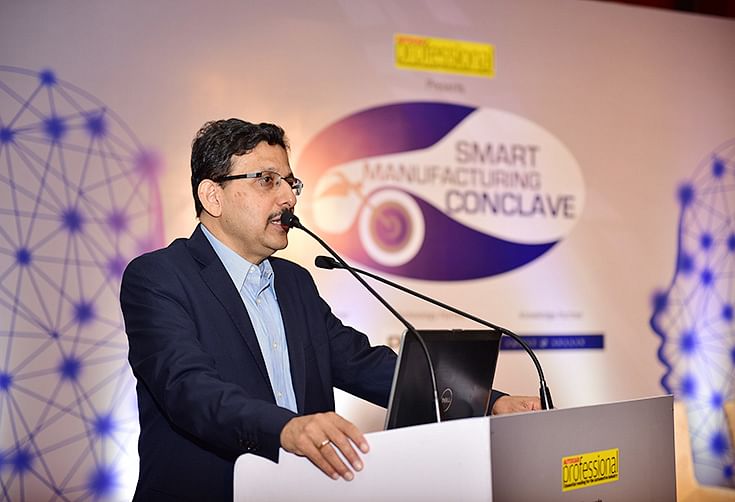
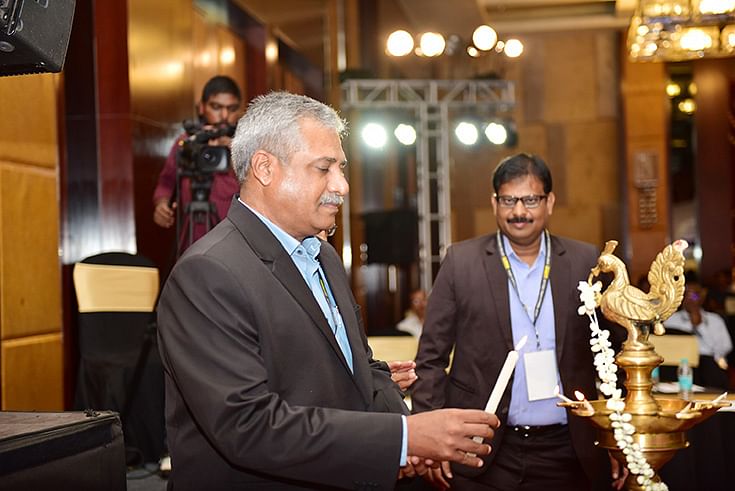
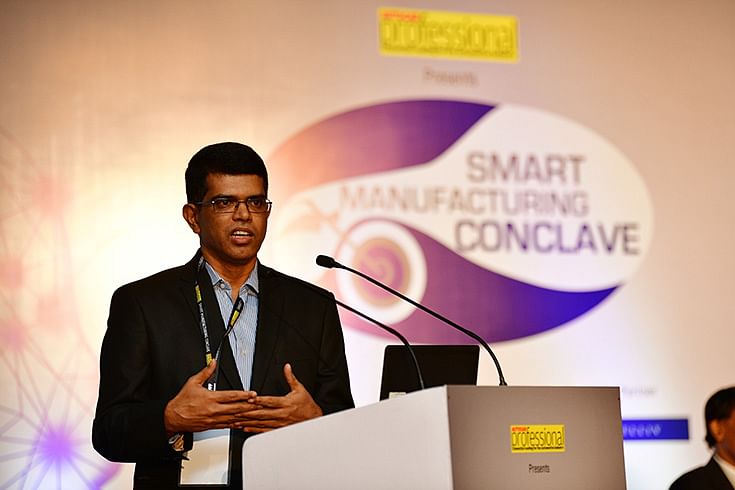
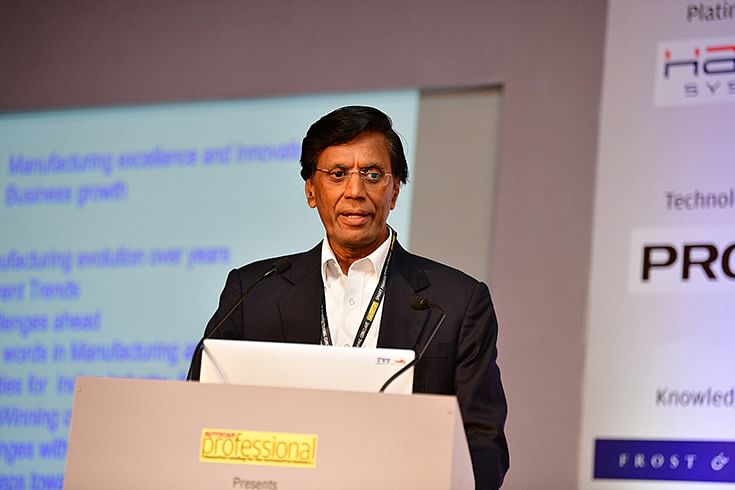
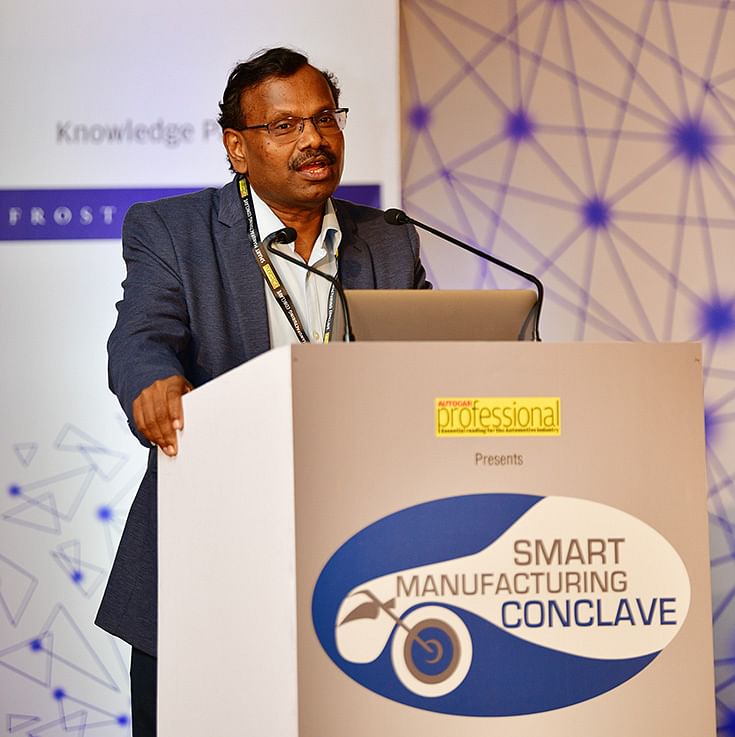
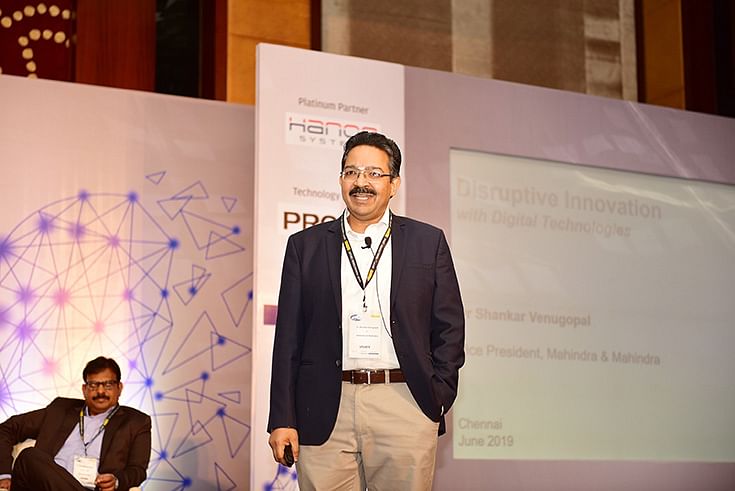
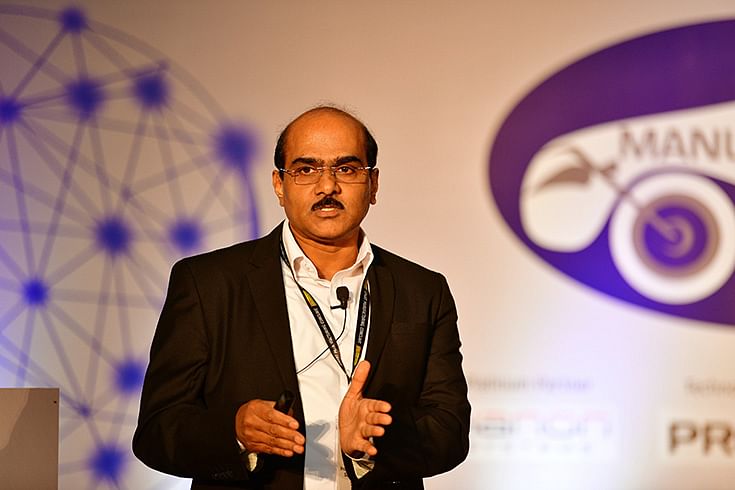
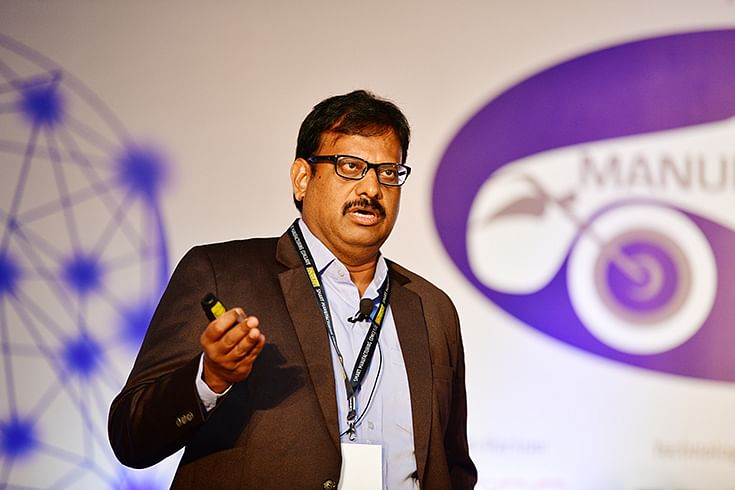
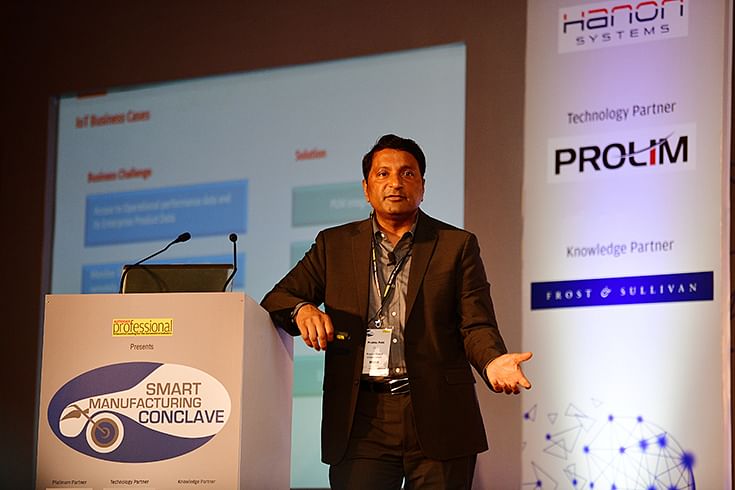
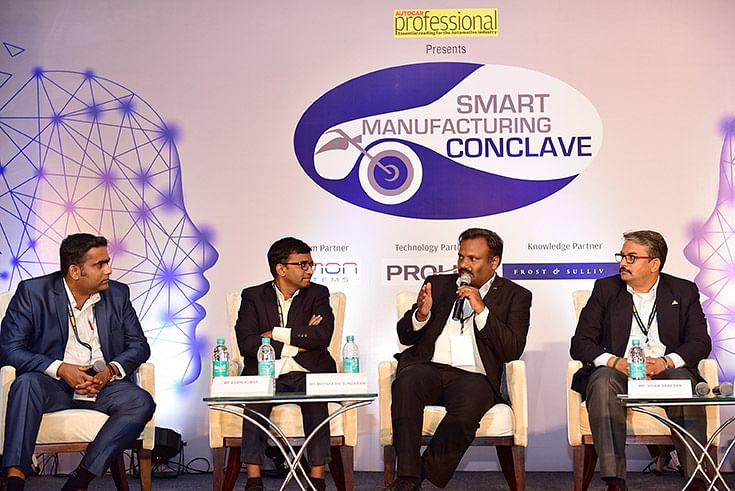
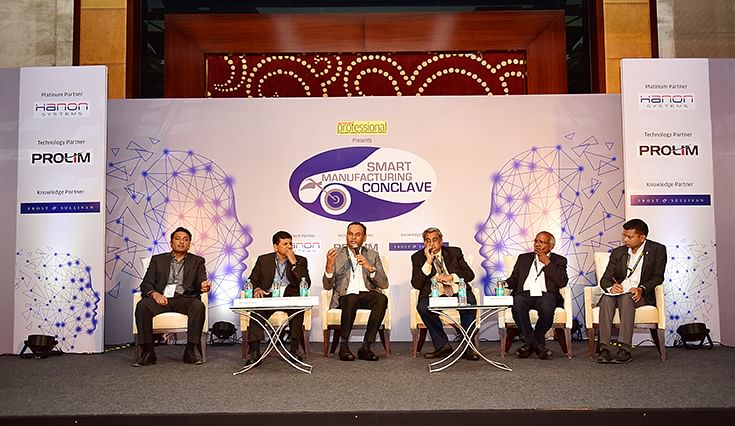

 Kiran Murali
Kiran Murali




